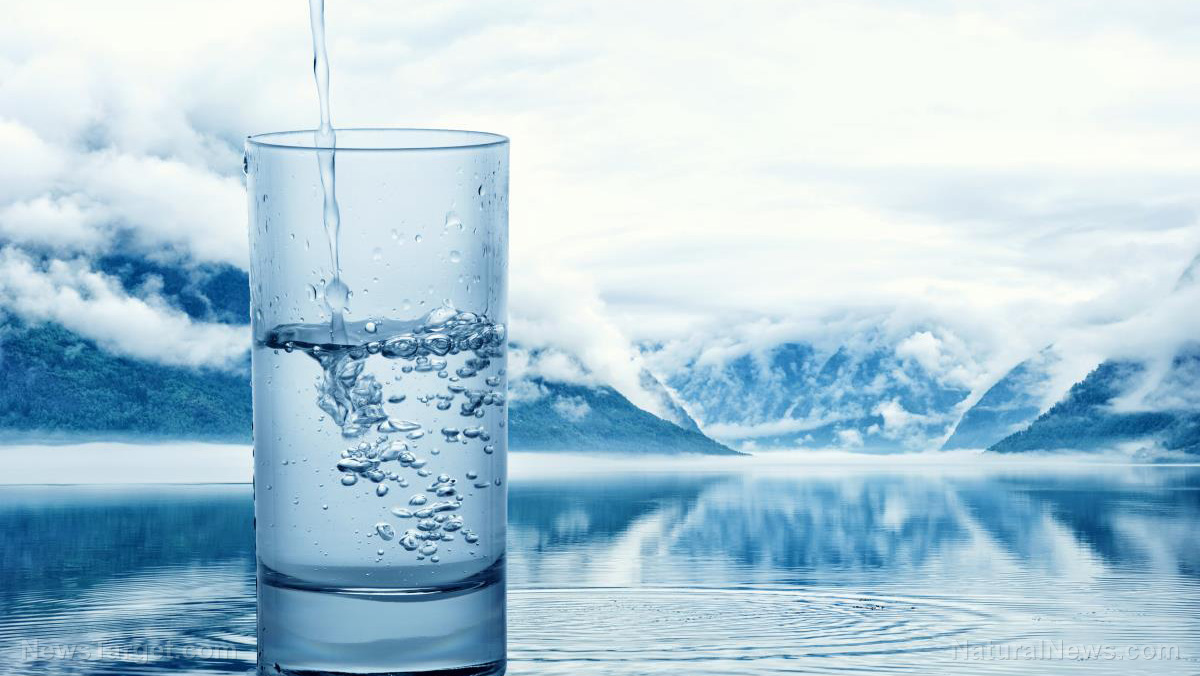Home // Home & Life
How to secure water during an emergency disaster
By Russel Davis // Aug 12, 2018
TAGS: chaos, Collapse, disaster, emergency, emergency preparedness, natural disaster, Off Grid living, prepping, survival, survival gear, water, water filters, water supply

Water is an essential commodity, especially during trying times such as emergencies and natural disasters, due to its many roles in body function. An article featured on the Live Science website notes that the human body is made up of 65 percent water, which explains why it is important for survival. According to the article, water flows through the bloodstream and supplies oxygen and nutrients to the cells. The entry also stresses that water helps rid the body of unwanted toxins and helps cushion the soft tissues and the joints. Likewise, the experts have discussed that the body's normal digestive process will not successfully push through without water.
The article also highlights that while the human body can survive three weeks without food, it can only last three days without water. With water being a vital component of survival, we have listed down a few pointers to remember in securing water during an emergency or disaster. (Related: EXCLUSIVE: Health Ranger offers to take over nationwide water quality testing from the EPA, saving taxpayers millions.)
Important tips in storing water
An entry posted on the Erie Insurance website stressed on the importance of stocking up on water supply before and when a disaster strikes. The article lists five things to consider when storing water in advance. These include:
- Checking the quantity -- The Water Quality and Health Council (WQHC) stresses that households should secure at least one gallon of water per person daily. According to the article, an average person should consume at least two quarts of water per day. The article adds that certain groups of people -- such as children, nursing mothers, elderly family members, and people in warmer climates -- may require more water. The entry also suggests storing water for personal hygiene and food preparation. The Federal Emergency Management Agency also recommends storing water that may last for up to three days.
- Considering the location -- The article also discusses the importance of storing water in a cool, dark place away from heat and sunlight that can make the containers leak. The entry also discourages people from storing water near gasoline, kerosene, or pesticides, the reason being that fumes from these toxic chemicals may well penetrate the water containers.
- Taking note of important dates -- According to the article, most bottled water may last for up to a whole year. Stored water taken from the tap should be replaced after six months, the entry suggests.
- Identifying other safe water sources -- Running out of water supply is not something people would want to experience. If stored water turns out to be inadequate, people may rely on other water sources such as melted ice cubes, water from canned fruits and vegetables, as well as water drained from the water heater faucet. Likewise, an article featured on the Ask a Prepper website notes that creeks, rivers, and even rainwater can serve as potable water sources. The Water Quality and Health Council discourages obtaining water from otherwise questionable and potentially hazardous sources such as radiators, hot water boilers, and waterbeds as well as swimming pools or spas.
- Using the right storage container -- Choosing the right container is half the challenge in storing water before and during an emergency. According to the article, certain types of storage materials including soft plastic, fiberglass, or enamel-lined metal containers are ideal in storing water. The entry has also warned against containers that have previously held toxic substances in the past. Likewise, the entry highlights the importance of cleaning the containers prior to use. The article suggests rinsing each container out with a diluted chlorine bleach mixture with a ratio of one part bleach to ten parts water.
Sources include:
Related Topics
chaos Collapse disaster emergency emergency preparedness natural disaster Off Grid living prepping survival survival gear water water filters water supplyLatest News
04/27/2023 / By Ethan Huff
Related News
04/27/2023 / By Belle Carter
04/27/2023 / By Kevin Hughes
04/26/2023 / By Arsenio Toledo
04/26/2023 / By Arsenio Toledo
04/26/2023 / By Ramon Tomey
04/26/2023 / By Arsenio Toledo
Take Action:
Support NewsTarget by linking to this article from your website.
Permalink to this article:
Copy
Embed article link:
Copy
Reprinting this article:
Non-commercial use is permitted with credit to NewsTarget.com (including a clickable link).
Please contact us for more information.
Please contact us for more information.





















